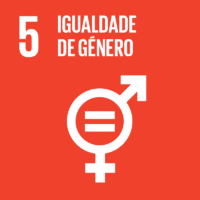Ciência_Iscte
Publicações
Descrição Detalhada da Publicação
Decomposition of the gender wage gap in Portugal, 1998-2007: the evidence of gender discrimination
Título Revista
Portuguese Journal of Social Science
Ano (publicação definitiva)
2013
Língua
Inglês
País
Reino Unido
Mais Informação
Web of Science®
Scopus
Google Scholar
Esta publicação não está indexada no Overton
Abstract/Resumo
The purpose of this paper is to analyse the gender wage gap in Portugal by applying the counterfactual decomposition method of Machado and Mata (2005). In order to obtain a measure for wage discrimination at different quantiles, wage function estimation is based on quantile regression analysis (Koenker and Basset, 1978), using datasets from the Inquérito ao Emprego, Portuguese Labour Force Survey (IELFS) of 1998 and 2007. The decomposition of gender wage inequality shows potential wage discrimination by gender due to the differences in the returns of working men's and women's characteristics. This discrimination increases across the whole distribution, for both 1998 and 2007. Although the differences in the working men's and women's characteristics reduced, the results show empirical evidence of the persistence of the discrimination effect in 2007 – at the same level. In addition, Oaxaca-Blinder's standard decomposition approach, developed in 1973, was applied. The results confirm that the average gender wage gap does not reflect the reality observed throughout the wage distribution, inasmuch as it overestimates what happens in lower-level quantiles and underestimates those of the higher levels.
Agradecimentos/Acknowledgements
--
Palavras-chave
Machado-Mata decomposition,Gender,Quantile regression,Wage discrimination
Classificação Fields of Science and Technology
- Outras Ciências Sociais - Ciências Sociais
Contribuições para os Objetivos do Desenvolvimento Sustentável das Nações Unidas
Com o objetivo de aumentar a investigação direcionada para o cumprimento dos Objetivos do Desenvolvimento Sustentável para 2030 das Nações Unidas, é disponibilizada no Ciência_Iscte a possibilidade de associação, quando aplicável, dos artigos científicos aos Objetivos do Desenvolvimento Sustentável. Estes são os Objetivos do Desenvolvimento Sustentável identificados pelo(s) autor(es) para esta publicação. Para uma informação detalhada dos Objetivos do Desenvolvimento Sustentável, clique aqui.

 English
English


